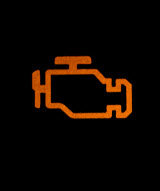Tampering with Check Engine Lights

Buying a used car can be a stressful and frustrating experience, especially for consumers who purchased a vehicle that begins exhibiting a mechanical defect, often indicated by the check engine light. Fortunately, those who purchase defective vehicles from used car dealers are often eligible to recover damages compensating them for the cost of the car, replacement, repair, and other incidental costs. For help filing your own claim against a dealer who sold you a car with an engine problem, please contact a member of our used car fraud legal team today.
The Purpose of Check Engine Lights
Most of us have experienced the moment when the check engine light comes on in our car. While this is often followed by a groan, these lights actually play an important role in warning drivers of potential problems and in helping them avoid more serious damage. Check engine lights are programmed to come on when the car’s computer detects what is referred to as a Diagnostic Trouble Code. Unfortunately, there’s no way to tell what whether the car has a major problem, or something minor, such as a loose gas cap. Mechanics are able to determine the reason that the light came on by using a scanning tool, which helps identify the diagnostic code and what it indicates.
What Qualifies as Tampering?
Auto dealers who sell used cars are required under both state and federal law to provide proof of inspection to potential buyers, and if a repair was made, evidence of that repair. This includes an inspection of the airbags, seat belts, and tires, but also the engine and the transmission. While many dealers take appropriate steps to repair engine problems uncovered during the inspection, it is sadly, not uncommon for dealers to instead, tamper with the car’s check engine light by resetting it, so that it doesn’t come on until after the purchase has been completed. There are a number of ways to do this, some more difficult than others. For instance, some dealers have simply placed a piece of black tape between the panel and the bulb, so that the light cannot be seen by the driver, while other dealers remove the bulb entirely. There have even been instances when dealers rewire the vehicle so that the light will briefly come on when the car starts, as it is supposed to do, but will not come on when there is actually a diagnostic code detected. Fortunately, even when a check engine light has been reset, a vehicle will re-display the light after no more than a few days of driving, which gives consumers time to return the vehicle and confront the dealer with the problem.
One of the best ways to avoid purchasing a vehicle that has been tampered with is to have an auto parts store scan the car’s computer. Consumers are also encouraged to periodically check that all of their dashboard lights are working as intended.
Call Today for Legal Advice
To speak with an experienced used car fraud attorney about your own recent purchase in Philadelphia, please call Louis S. Schwartz at CONSUMERLAWPA.com at 215-790-1800 today for a free consultation.
Resource:
forbes.com/sites/jimgorzelany/2017/05/08/heres-what-it-will-cost-you-if-your-cars-check-engine-light-stays-on/
